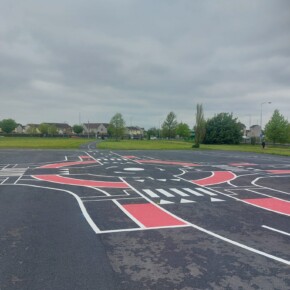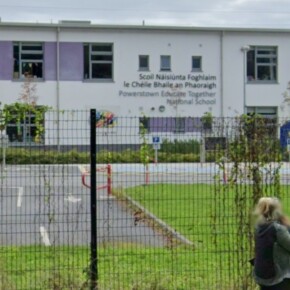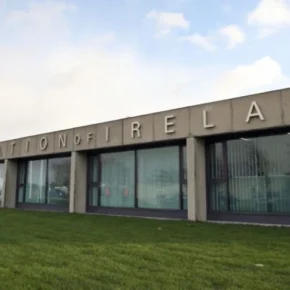Conflict in Ukraine is “deepening harmful gender stereotypes” and putting gender equality at risk
Padraig Conlon 21 Feb 2024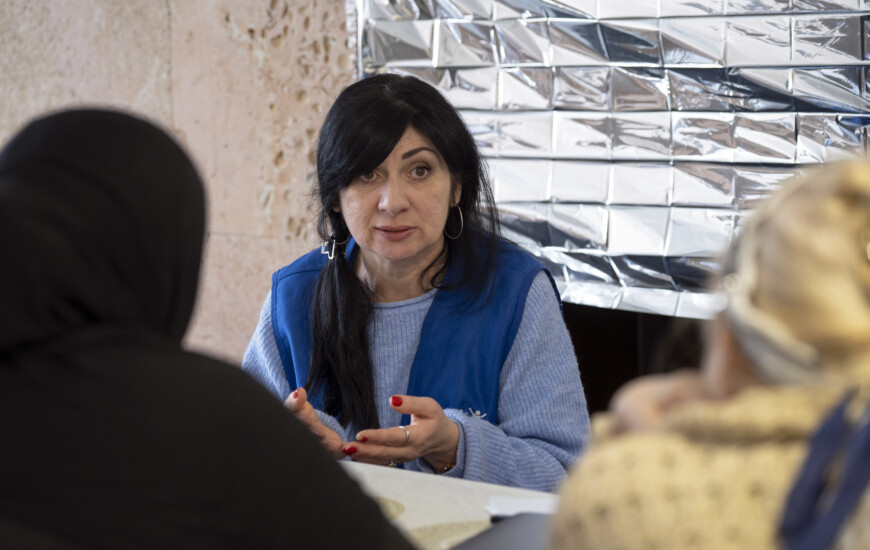
GENDER equality is being threatened by the war in Ukraine, girls’ rights NGO Plan International warns ahead of the two-year mark since the escalation of the war on February 24.
Interviews with girls, young women, and NGO workers from across Ukraine, and Ukrainian refugees now living in Poland, Moldova, and Romania, suggest that the war has deepened and reinforced traditional gender roles.
As a consequence, it is feared the conflict is exacerbating harmful gender stereotypes and reinforcing militarised perceptions of masculinity, where men and boys are increasingly seen as defenders of their country while care and domestic responsibilities fall to women and girls.
Gender-based violence has also skyrocketed, with girls and young women in particular increasingly exposed to intimate partner violence, sexual violence, harmful online content and sexual exploitation and abuse.
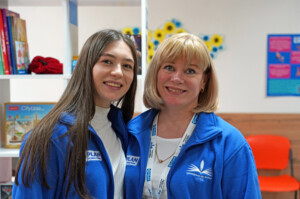
Veronica, 17, and ‘Let’s go’ staff member at the children’s centre in Kyiv
Within Ukraine, it is estimated that at least 3.6 million people are now in urgent need of gender-based violence services, with a growing demand for these services extending to Poland, Moldova, and Romania.
Ganna Bazilo from Ukrainian Action in Ireland hopes that raising awareness about gender inequality and protection from gender-based violence will help women and girls feel safer.
“Two years of our daily work with the Ukrainian community in Ireland has shown that the life of a forcefully displaced person is far from ideal, even when basic social protection is provided,” she said.
“Every single Ukrainian has been traumatized by Russia’s aggression.
“Women and children are particularly vulnerable and traumatized by separation from husbands and parents, forced displacement and loss of closest family.
“Many of them have families living in other EU member states.
“These are multiplied with the stress of finding themselves in new countries and new communities and often living with strangers.
“We hope that raising awareness about gender equality and protection from gender-based violence would help women and girls to feel safer and know what to do and where to seek help in case they feel endangered.”
Daryna, a 21-year-old activist working with NGO Girls, a Plan International partner organisation in Ukraine said:
“I work with young women and girls, and I see the transformation happening throughout Ukraine as a direct impact of the war.
“We can especially see the so-called masculinisation as a social and cultural phenomenon.
This puts young women and girls at risk, and subjects them to gender-based and emotional violence.”
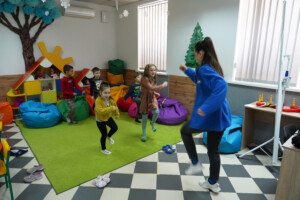
‘Let’s go’ is a safe space where children aged 5 to 17 can visit to take part in fun activities that are suitable for their age and interests such as art workshops, board games, dance classes or film screenings. Run by local NGO Istok, the centre is supported by Plan International as part of their emergency response to the Ukraine war. Located in Ukraine’s capital city Kyiv, the centre also provides counselling for teenagers affected by the conflict, helping them discuss any issues they may be facing.
Studies have also found that young Ukrainians are now less likely to consider gender equality as a national priority, compared to before the war. A 2023 survey by UNFPA indicates that only 2% of young Ukrainians are worried about gender equality, down from 9% in 2021[2].
“With no end in sight to the war in Ukraine, we have grave concerns that the gendered impacts of this devastating crisis are being overlooked and putting girls’ and women’s rights at risk”, says Sven Coppens, Plan International’s Ukraine Response Director.
“Through our work with partners across Ukraine and in neighbouring countries, we have seen how the toll of living through conflict is deepening harmful gender stereotypes, and at the same time, fuelling gender-based violence. We are increasingly concerned that gender equality will suffer setbacks as a result, with potentially profound consequences for generations to come.”
The war in Ukraine is also creating complex and spiralling mental health challenges, Plan International warns, amid widespread fear and uncertainty about the immediate and long-term future.
The NGO is particularly concerned about the long-term impact of children missing out on school, with Ukrainian pupils having now endured nearly four years of disruption and setbacks to their education since the onset of the COVID-19 pandemic.
Online learning, and a lack of interaction with other children, can lead to early isolation and critical delays in children’s learning processes, with potentially severe consequences for learning and development.
Plan International, which has now reached over 650,000 people affected by the war in Ukraine via nearly 50 partner organisations Ukraine, Poland, Moldova, and Romania, is urging donors to prioritise funding for the humanitarian response and long-term solutions in Ukraine and neighbouring countries, with a focus on age and gender responsive programmes.
This includes gender-based violence, mental health and psychosocial support services, in addition to efforts to facilitate face-to-face education for Ukrainian children.
“Every day I’m reading the news about new missile attacks. I’m hearing stories of my relatives and friends. My friends are dying. And on the other hand, in my email, I keep reading that the Ukraine crisis is not there anymore”, said Nastya Podorozhny, founder of Martynka, a Plan International partner organisation in Poland supporting survivors of gender-based violence.
“We cannot stress enough that the war in Ukraine is still ongoing, that the humanitarian needs remain vast, and are still growing,” Coppens continued.
“We urgently need more funds to scale up our work, so it is absolutely critical that donors and governments continue to prioritise Ukraine, with a focus on gender-based violence, mental health and psychosocial support and education in emergencies support.”
If you would like to make a donation please click on the following link: Ukraine Crisis – two years on – Plan International Ireland



